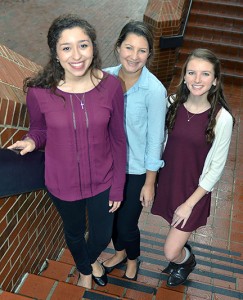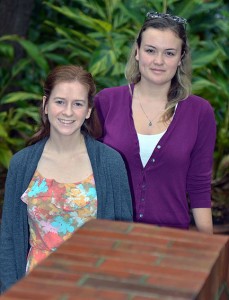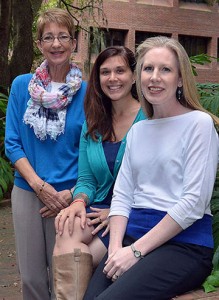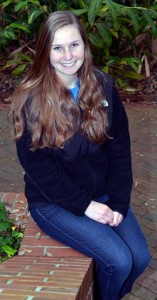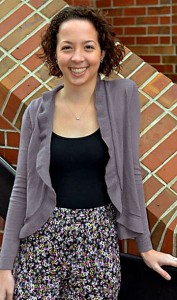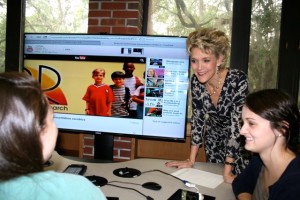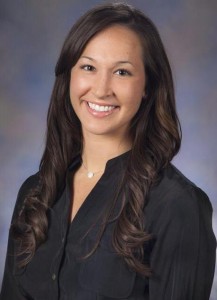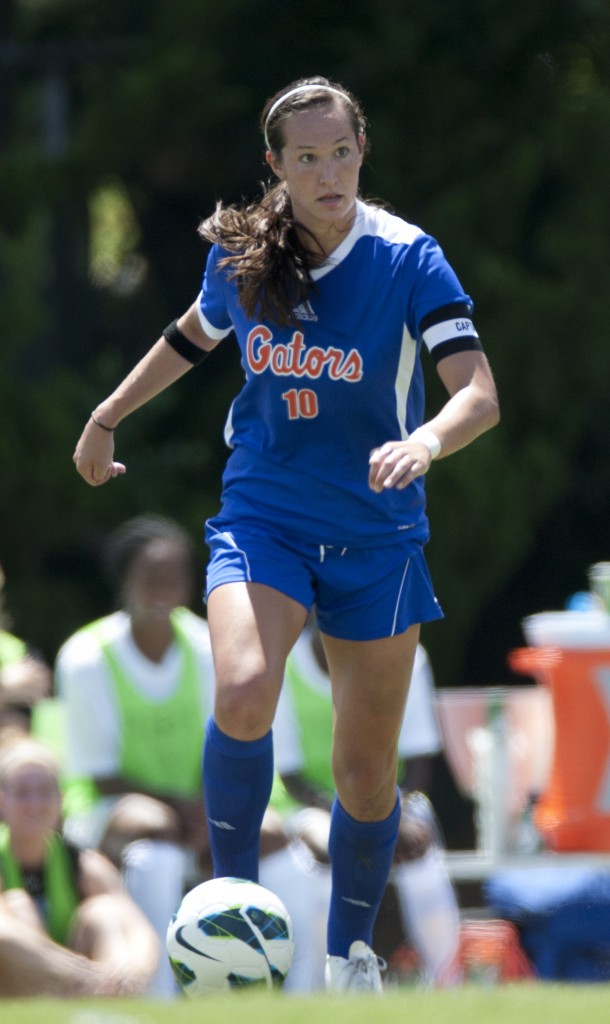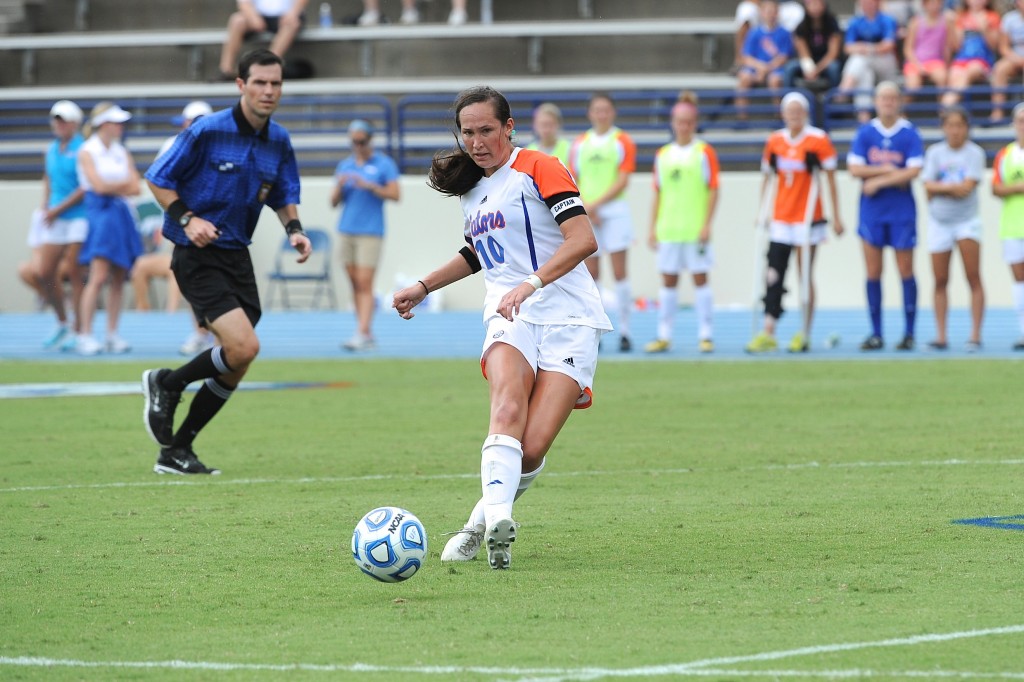UF Anderson Scholars program honors 17 ProTeach students–most ever!–plus 2 faculty mentors
Seventeen COE ProTeach elementary education students have been named UF Anderson Scholars for their outstanding academic performances during their first two years at UF—the most education students to receive the award in recent memory.
Two education faculty members—Mary Ann Nelson and Caitlin Gallingane—also were recognized for the second year in a row for mentoring or inspiring several of the honored students.
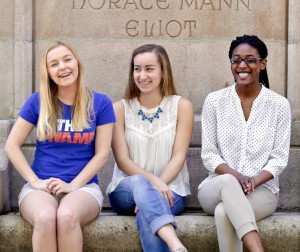
Anderson Scholars awarded with highest distinction are, from left, Katelyn Mayer, Caley Rappa and Krista Steele.
The Anderson award is the highest recognition bestowed on undergraduate students for their academic excellence. Anderson Scholar certificates are given campuswide by the College of Liberal Arts and Sciences to students who have earned cumulative grade point averages of at least 3.90 (with distinction); 3.95 (high distinction); and 4.0 (highest distinction) during their freshman and sophomore years.
College of Education students receiving the Anderson Scholar award with highest distinction are Katelyn Mayer, Caley Rappa and Krista Steele.
Education students awarded with high distinction are Simona Blanarikova, Lindsay Burn, Lauren Cassell, Autumn Finke, Felica Hanley, Margaret Kelly, Abby Newman, Caley Rappa and Alexandra Smart.
Scholars honored with distinction are Shannan Campbell, Sicily Guarisco, Cassandra Lussier, Tori Rubloff and Sydney Vail.
“Being recognized as an Anderson Scholar is a huge honor. It also reaffirms that our school takes pride in our accomplishments and that they recognize us for doing so,” said Krista Steele of Orlando. She said she hopes to teach first or second grade after graduation “and make a difference in students’ lives and the education field.”
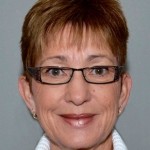
Mary Ann Nelson
Anderson Scholars faculty honoree Mary Ann Nelson is a special education lecturer; her colleague Caitlin Gallingane is a clinical assistant professor in the School of Teaching and Learning. Each student honoree can anonymously nominate one instructor for the faculty honor. Nelson actually has been selected three times overall for the faculty award.
“You go into teaching with the hope of inspiring students. It is always an honor when a student acknowledges any contribution you might have made in that direction,” Nelson said. “I love what I teach and who I teach and it is such a privilege to be a part of their professional training. I think of them as junior colleagues and it pleases me to be able to share my knowledge and experience with them.”
Student winner Caley Rappa, also from Orlando, described faculty honoree Gallingane as “the teacher we all want to be when we grow up, not just as a professor but especially an elementary school teacher. I believe Dr. Gallingane is the heart and soul of the College of Education.”

Caitlin Gallingane
Gallingane said she and other COE professors work as closely as they can with undergraduate students because they identify with students’ concerns as they prepare for careers in a constantly evolving profession.
“I try to see things from their perspective and give them the support they need to be successful,” Gallingane said. “I act as an advocate because I care about their experience at UF.”
The Scholars award program is named in honor of James N. Anderson, who served as the first dean of the College of Arts and Sciences from 1910 until 1930. Anderson Hall bears his name.
WRITER: Larry Lansford, director, news and communications, UF College of Education; llansford@coe.ufl.edu; 352-273-4137

